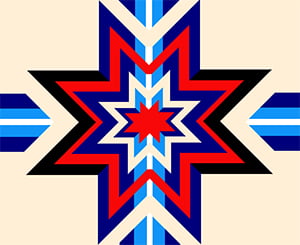Insights on New Paths Conference From CBWC
 The New Paths Indigenous Peoples Ministry Conference was held in Mississauga, ON on April 4-5, 2014. Rev. Paul Carline (CABC’s Director of Intercultural Ministries and CBM Strategic Associate) was one of the key organizers of the event. Read more about the event here on Paul’s blog: https://baptist-atlantic.ca/blog/reconciliation-language-learning/.
The New Paths Indigenous Peoples Ministry Conference was held in Mississauga, ON on April 4-5, 2014. Rev. Paul Carline (CABC’s Director of Intercultural Ministries and CBM Strategic Associate) was one of the key organizers of the event. Read more about the event here on Paul’s blog: https://baptist-atlantic.ca/blog/reconciliation-language-learning/.
The article below was posted on the Canadian Baptist of Western Canada’s website (http://cbwc.ca/2014/06/vol-10-25-cbwc-response-new-paths-indigenous-peoples-ministry-conference/) by Executive Director Jeremy Bell (reposted with permission).
On the weekend of April 4-5, 2014, Canadian Baptist Ministries facilitated the first New Paths Indigenous Peoples Ministry Conference in Mississauga, ON. Many folks gathered at Lorne Park Baptist Church to hear presenters such as Stan Beardy (Ojibway/Cree and Regional Grand Chief), Dr. Terry LeBlanc (Mi’kmaq and current director of My People International), Dr. Cheryl Bear-Barnetson (Nadleh Whut’en and award winning recording artist and on the board of North American Institute for Indigenous Theological Study) and Mark Buchanan (Assoc. Prof. at Ambrose Seminary College, Calgary).
They spoke about how the church is engaging in ministry with Canada’s First Nations, Metis, and Inuit people. Plenary sessions included topics such as an historical overview of the treatment of Indigenous People in Canada, how churches have attempted to engage in this sort of ministry, and how some engage Indigenous culture in their churches.
The workshops complemented these presentations, and there was plenty of networking, learning, and fresh realizations happening. The tone of the weekend was incredibly gracious and inviting, and those who attended wished that this sort of conference could occur just as effectively in other regions of Canada. The conference was attended on behalf of the CBWC by Jodi Spargur (Pastor of God’s House of Many Faces, Vancouver) Rod Olson (CBWC’s Refugees and Displaced Peoples Coordinator) and Mark Doerksen (CBWC’s Heartland Regional Minister), as well as by several other members of CBWC churches from Whitehorse, Vancouver Island, Kelowna and Swift River, Saskatchewan.
Jodi Spargur’s Response:
Although most of us like the idea of taking New Paths with our First Nations neighbours, our feet are accustomed to following the old paths.
And to be honest most of our old paths have either walked around our First Nations, Inuit and Metis neighbours, or seen them as a mission field for our youth groups, but not as missionaries/theologians/teachers with unique gifts to bring to the whole church. I appreciated that CBM walked a new path in handing the platform over to these evangelists, theologians and teachers who are First Nations and bring their whole selves to the task of walking out their faith. And I was struck by the fact that our gathering took place just one week after the final national event of the Truth and Reconciliation Commission on Residential Schools. For those of us who bore witness to those hearings, it is sometimes hard to walk at all with the memory of how poorly we have walked with our neighbours in the past. But we were also just on the other side of Easter, when we are reminded that the sin and shame that put Jesus on the cross was overcome as he walked out of the grave. This New Path needs to be marked by humility and grace.
It will take some time to get this right. But at every turn there was invitation into something more beautiful and powerful and more gospel than we have imagined.
Mark Doerksen’s Response:
I’ve often wondered about where to start in attempting to improve relationships and understanding with our Indigenous People and this seminar proved to be just the catalyst needed for me. In a broader sense I’ve been part of a suburban church in Winnipeg for a while and our congregation has limited interaction with Canada’s Indigenous People. We do have some connection in serving other ministries in our city and that’s often where some connections occur and are limited to. I was challenged to help our congregation hear firsthand stories of how our First Nations/Inuit and Metis people have been treated, in order that we might seek greater understanding. I’m hoping to make that happen in the near future. Yet I also felt as I participated and listened that some of my personal ignorance was graciously yet powerfully challenged. I’m thankful for the chance to attend, and that the seminar created a thirst to know more, to listen, grow, and engage in these issues, and to do so humbly.
NEXT STEPS ON A NEW PATH
1. Read the UN report on Canadian Indigenous Relations and ask where this most closely connects to your community.
2. Ask, what is the next step for me? What is the next step for my church community in this journey? Some suggestions are: education/ awareness raising, identification of what First Nations/Inuit or Metis people are your neighbours, meaningful connection with those neighbours, reconciliation, understanding of theological concepts around culture and faith, etc., engagement in a justice issue that affects your First Nations neighbours.
For assistance or more information please contact Paul Carline, CABC’s Director of Intercultural Ministries – Phone 506-635-1922 ext. 106 or email.
